Israel is one of the few countries actively supporting President Trump’s presumed decision to de-certify the Iran nuclear deal (the Joint Comprehensive Plan of Action, or JCPOA) this week. Israeli Prime Minister Benjamin Netanyahu—who was known for his stern opposition to the Iran nuclear deal long before it was signed in the summer of 2015—saw in Trump’s election victory an opportunity to increase U.S and international pressure on the ayatollahs regime in Tehran, as well as launch a review of the deal that Trump has called a “terrible deal.”
Israel views Iran as an acute threat to its national security, directly and through its proxies in the region, including Hezbollah and Hamas. But beyond that, a series of domestic political considerations, including specifically related to ongoing investigations of which he is a subject, help explain Netanyahu’s stance.
Peas in a pod?
Since Trump’s inauguration in January, the JCPOA and Iran’s negative behavior in the region were a main topic of discussion on the three occasions when Trump and Netanyahu met. In their last meeting in September in New York, the two spoke at length on Iran and coordinated their messages, which was evident in their speeches before the U.N. General Assembly the next day.
In his speech, Netanyahu cautioned that the JCPOA does not prevent Iran from developing a nuclear weapon—rather, it paves the way, noting that the sunset clause will allow Iran to develop nuclear weapons in the future, all while remaining part of the JCPOA. He quoted President Trump, who earlier that day described the deal as “one of the worst and most one- sided transactions the U.S has ever entered into,” a deal that has been “an embarrassment to the U.S,” and called for amending the agreement.
Netanyahu also spoke extensively of Iran’s negative behavior throughout the region: its ballistic missile program, support for terrorism, and meddling in other countries’ affairs, all the while threatening to annihilate the Jewish state. In the speech, he directly addressed Iran’s Supreme Leader stating that “the light of Israel will never be extinguished” and to the Iranian people he called in Farsi: “You are not our enemy.” And he clarified Israel’s position on Iran’s involvement in Syria, pledging Israel will prevent Iran from establishing military bases in Syria or opening new fronts against Israel (from the Golan Heights or Lebanon).
Undoubtedly, Netanyahu takes pride in standing shoulder to shoulder with President Trump on this issue, when most of the international community is opposed to such a move. On October 9, British Prime Minister Theresa May called Netanyahu, and expressed concern that Israel’s position will only increase the Iranian threat and contribute to regional instability. Netanyahu, reportedly, replied that the JCPOA should be “nixed or fixed.” May’s call indicates a belief that Netanyahu has influence on Trump, but it also identifies Israel as part of the problem—suggesting that if something will go wrong, Israel will share the blame.
Politics at play
Trump’s reported intention to de-certify Iran’s compliance with the deal on October 13 is hailed by Israeli politicians across the political spectrum. Iran is one of the few issues on Israel’s political agenda around which there is broad consensus. The Israeli defense establishment, past and present, seems to oppose decertification. The IDF General Staff, while not wholeheartedly embracing the JCPOA early on, saw the benefits of the nuclear deal and did not deem it urgent to alter it. Former senior defense officials, such as former Defense Minister Ehud Barak (an Iran hawk and once a proponent of the military option against Iran’s nuclear facilities) and former National Security Advisor Uzi Arad, did voice in recent days their concern and opposition to decertification. Interestingly, Trump and Netanyahu, both opposing the JCPOA, find themselves in profound disagreement with their respective defense establishments and intelligence communities on their assessments of the JCPOA.
Israel will no doubt express strong public support once Trump announces his decision on October 13, and will most likely encourage its friends in Congress to support new legislation that will increase U.S pressure on Iran, perhaps including re-imposed sanctions that were lifted as a result of the JCPOA.
Netanyahu clearly feels more comfortable focusing on Iran in his discussions with Trump, rather than on the Israeli-Palestinian issue. He is possibly aiming at a quid pro quo, which in practical terms means Israeli support on Iran, and in return Washington giving a “green light” to Israeli settlement activity. Next week, Netanyahu is scheduled to announce new plans for construction in the West Bank and Jerusalem, and has reportedly heard no objection from the White House.
There is also an important domestic Israeli political angle. Many Israelis see Netanyahu—facing a series of criminal investigations that will resume next week—as at his best when he deals and speaks authoritatively on Iran. His meeting with Trump and address to the U.N. General Assembly in September were meant among other reasons to signal to the Israeli law enforcement agencies, as well as to the Israeli public, that this is not a time to indict a prime minister over what he has said are petty charges.
While Netanyahu has been consistent in his opposition to the JCPOA and continues to be a proponent for increasing pressure on Tehran, he is also motivated by his desire to be seen as one of the closest foreign leaders to President Trump, someone with both clout and access. He has a clear interest in steering the U.S-Israel dialogue in the direction of Iran, rather than on the Israeli-Palestinian process. Finally, he has a political survival instinct, which leads him to play the Iran card to his political base and beyond, as well as send a subtle message to Israeli law enforcement that now is not the time to undermine his leadership.
At present, the pro’s outweigh the con’s in Netanyahu’s calculus. In the short term, Netanyahu’s continued vocal opposition to the JCPOA and in support of additional pressure on Iran gives him a boost in Israeli public opinion. Cozying up to Trump does not hurt him in the polls either, as Trump is popular among many Israelis. Nevertheless, in the medium to long term, if decertification will lead at a later stage to a “slippery slope”, which will result in the collapse of the JCPOA, as well as a resumption of Iranian nuclear activities, Netanyahu will risk being blamed by the international community for his role in this affair, perhaps further alienating Europeans, as well as Democratic leaders and supporters in the United States.
The Brookings Institution is committed to quality, independence, and impact.
We are supported by a diverse array of funders. In line with our values and policies, each Brookings publication represents the sole views of its author(s).

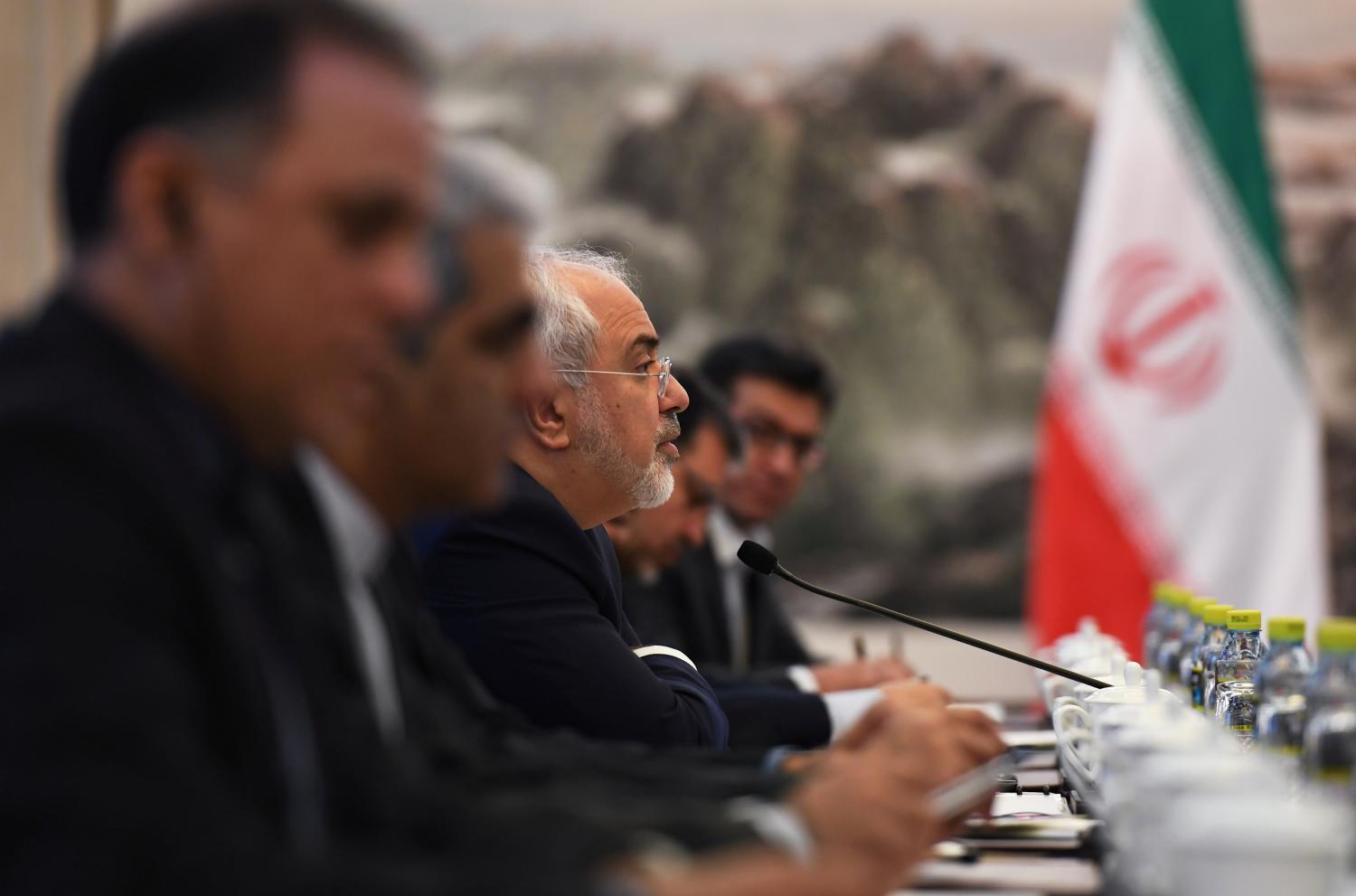
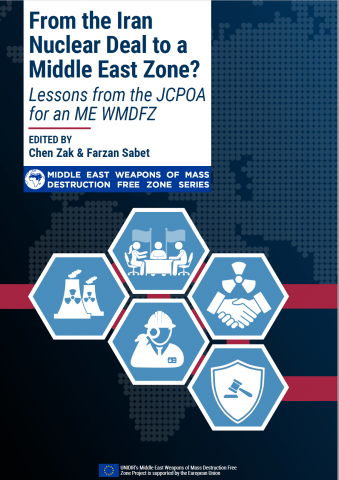
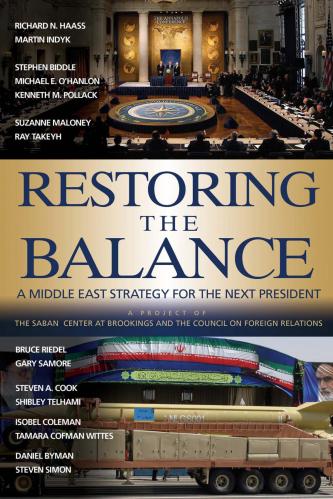
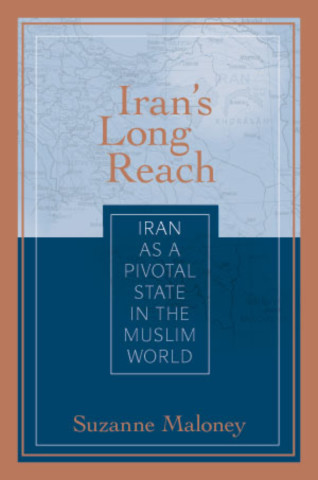
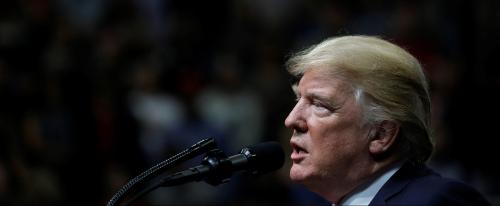
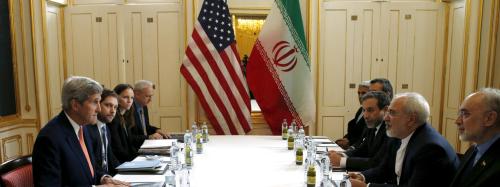
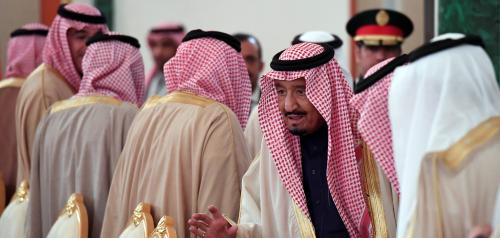



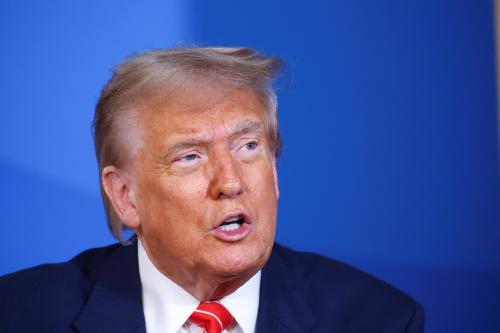
Commentary
The domestic considerations behind Israel’s support of Iran deal de-certification
October 13, 2017